New Scientist covers the latest developments in science and technology that will impact your world. New Scientist employs and commissions the best writers in their fields from all over the world. Our editorial team provide cutting-edge news, award-winning features and reports, written in concise and clear language that puts discoveries and advances in the context of everyday life today and in the future.
Elsewhere on New Scientist
How’s your health? • Focusing on health with as much precision as disease will make us all feel better
New Scientist
JWST shows Crab Nebula in new light
We must hit net zero by 2034 to avoid breaching 1.5°C limit
Insects disguise themselves as enemy spiders
We may have seen a black hole’s birth • Strange light undulations from a supernova blast could be evidence of a black hole’s creation
AI brings John Lennon’s vocals to new Beatles’ song
Analysis Brain health • Is it really vital to get 8 hours of sleep a night? The largest analysis of brain scanning data yet casts doubt on the idea that shorter sleep duration is linked to shrinkage of the brain, reports Clare Wilson
Starfish are actually flattened heads with no bodies
Trip to space and back has no effect on mouse embryos
Do other animals have a menopause? • Female humans and whales have a post-reproductive life stage, but what about other mammals? It depends how you ask the question, says Michael Le Page
The Great Sphinx may have been largely blown into shape by the wind
AIs can guess where you live and how much you earn
The health costs of wildfires • Wildfires have undone years of progress on improving air quality, and the smoke can have devastating effects on our bodies, reports Grace Wade
What is in wildfire smoke?
Record-breaking quantum computer has over 1000 qubits
We are homing in on brain cells that cause motion sickness
Ancient valleys seen beneath ice • A hidden landscape has been unveiled under the East Antarctic ice sheet
Bird flu reaches the Antarctic and could cause devastation
Discovery of key gene variants could help treat migraines
Roosters may be able to recognise themselves
Smart glasses that help you find things
Cells may get a boost by eating viruses
Ice-spewing supervolcano may have been found on Pluto
Really brief
Martian gamble • NASA’s Mars Sample Return mission aims to find life, but a rethink is needed to ensure Earth’s biosecurity, says Paul Marks
Health Check • Filtering it out We finally have evidence that air-cleaning machines reduce covid-19 sick days in schools, but it has taken too long to carry out randomised trials, says Clare Wilson
Boldly going
Your letters
A new road ahead • Wildlife crossings providing safe passage around roads will need global buy-in, says a rare book combining truth and hope. Vijaysree Venkatraman explores
Our language, our lives • Invaluable insights into the human mind may disappear with the extinction of thousands of languages, finds Colin Barras
New Scientist recommends
The film column • Remember this A poignant and powerful meditation on memory tells the story of Chilean writer and journalist Augusto Góngora, whose collection of remembrances helped Chile regain its national identity after its dictatorship fell, says Simon Ings
Are you healthy? • It is a surprisingly difficult question to answer. But a new generation of tests, based on emerging insights into human biology, offers a way to find out, says Helen Thomson
FIVE QUICK WAYS TO JUDGE YOUR HEALTH
The elusive origins of life • Seventy years ago, we were poised to understand how life on Earth began. Michael Marshall explains...

 Oct 26 2024
Oct 26 2024
 Oct 19 2024
Oct 19 2024
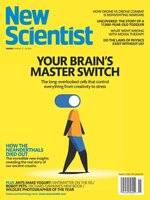 Oct 12 2024
Oct 12 2024
 Oct 05 2024
Oct 05 2024
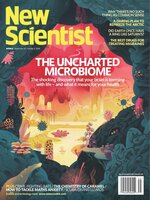 Sep 28 2024
Sep 28 2024
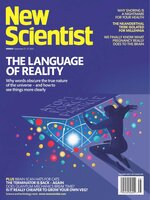 Sep 21 2024
Sep 21 2024
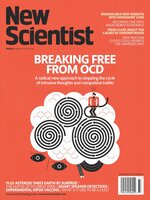 Sep 14 2024
Sep 14 2024
 Sep 07 2024
Sep 07 2024
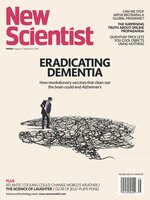 Aug 31 2024
Aug 31 2024
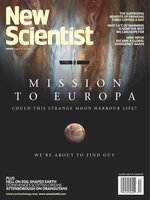 Aug 24 2024
Aug 24 2024
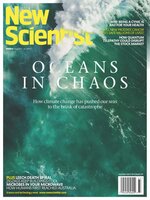 Aug 17 2024
Aug 17 2024
 Aug 10 2024
Aug 10 2024
 Aug 03 2024
Aug 03 2024
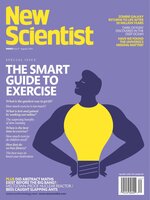 Jul 27 2024
Jul 27 2024
 Jul 20 2024
Jul 20 2024
 Jul 13 2024
Jul 13 2024
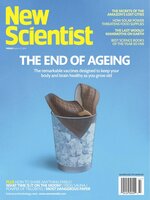 Jul 06 2024
Jul 06 2024
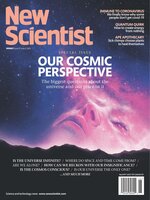 Jun 29 2024
Jun 29 2024
 Jun 22 2024
Jun 22 2024
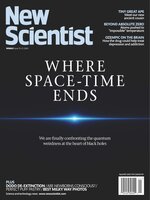 Jun 15 2024
Jun 15 2024
 Jun 08 2024
Jun 08 2024
 Jun 01 2024
Jun 01 2024
 May 25 2024
May 25 2024
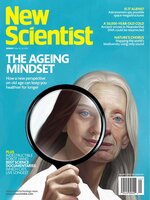 May 18 2024
May 18 2024
